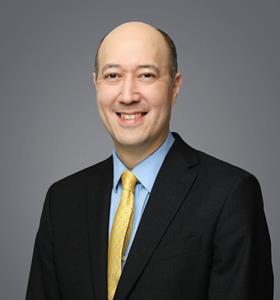The great judge Sir Thomas Bingham, in Bolton v Law Society [1994] 1 WLR 512, famously noted that lawyers should be trusted ‘to the ends of the earth’. Every practitioner, after just a few years of practice, realises that trust is a cornerstone of the client-lawyer relationship. Barristers also need to win the trust of their solicitors, without which disharmony reigns and instructions dwindle.
Recently, I came across a framework – the Trust Equation - that deepened my understanding of trust. It first appeared in The Trusted Advisor by US authors Maister, Green and Galford (2000). They broke down trust into four elements, expressed in a simple formula:

where T stands for trust, C for credibility, R for reliability, I for intimacy, and S for self-orientation.
Credibility
As lawyers, we are fortunate that credibility is relatively easy to establish. We have professional degrees, firms, chambers, directory rankings, reported cases and track records to signal our expertise and experience.
Credibility is about more than knowledge. The way we dress, speak, and carry ourselves also creates a professional ‘presence’ that inspires confidence in clients.
Reliability
Recently, I was instructed midway through a case. The solicitor explained that the previous barrister took so long to respond to e-mails that she no longer wished to instruct him. A lawyer, or expert, who does not respond promptly, or submits work late, or cancels appointments or is late for them, will soon be deemed unreliable. Trust, once damaged in this way, is hard to repair.
It is crucial, particularly in the early stages of a professional relationship, to follow through on our promises. First impressions count, and we want to be seen as dependable.
While credibility and reliability are the best known aspects of trust, the next two elements are what really distinguish the great from the merely good.
Intimacy
Clients trust lawyers in whom they can confide, even about sensitive matters, and who show empathy.
In my field of personal injury, for example, catastrophically injured clients may want to discuss their sex lives or life expectancy. The more comfortable they feel in your presence, the more trusting they are likely to be.
We all know lawyers who excel in this area. They have a good ‘bedside manner’ and, with a kindly smile, look, or gesture, or a few gentle words, they make clients feel at ease. They have a certain warmth, humility and charm that others lack.
Self-orientation
Even when credibility, reliability and intimacy are present, trust can be diminished by high self-orientation. This refers to how much a lawyer appears focused on their own interests, be it fees, ego, or convenience.
The authors of The Trusted Advisor start the section on self-orientation by declaring:
‘there is no greater source of distrust than advisors who appear to be more interested in themselves than in trying to be of service to the client.’
To score well here, a lawyer should show a genuine concern for the client and their interests, rather than their own. This requires actively listening to clients and making them feel that you are treating them as you would a friend or family member.
With my direct access work, I often tell clients that they can call me out of hours or when I am on holiday. When they call and apologise for interrupting, I tell them that their case is more important than a few hours of my holiday.
A tool for reflection
For lawyers, credibility and reliability are common but intimacy and self-orientation are probably rarer.
The Trust Equation is a helpful tool to reflect on how trustworthy we are, and how we might improve. What can we change to be more credible, reliable, emotionally approachable and show that we care deeply for the client? Even small adjustments, such as acknowledging a client’s frustration or sending a follow-up e-mail, can make a big difference.
This exercise can help us be better lawyers, and more successful ones, for every client is looking for a lawyer they can trust ‘to the ends of the earth.’

Daniel Sokol is a barrister at 12 King’s Bench Walk. He is co-author of A Young Person’s Guide to Law and Justice (Book Guild, 2024)































2 Readers' comments